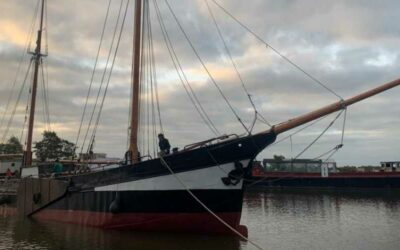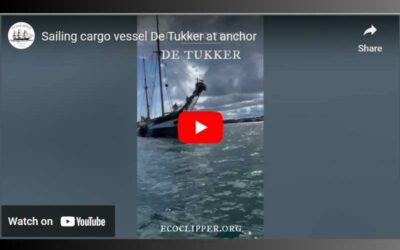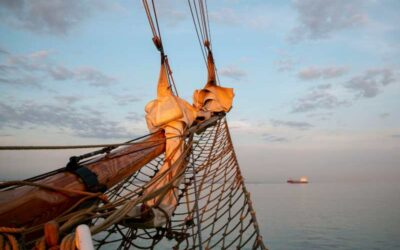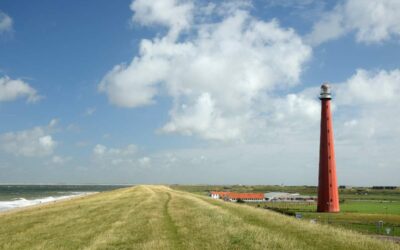ZESTA stands for ‘Zero Emission Ship Technology Association’ and EcoClipper CCO Hannah Hurford attended their conference at COP26 in Glasgow.
COP26 is the 26th UN Climate Change Conference, hosted this year by the United Kingdom, in partnership with Italy, and it has brought leaders together from all over the world to discuss plans to tackle and adapt to climate change.
This year’s conference is widely regarded as the last opportunity to deliver on commitments made by the delegates at COP21 in 2015 and laid out in the Paris Climate Agreement.
These commitments included the reduction of carbon dioxide emissions in all areas of society and the economy.
Floods, heatwaves and other extreme weather conditions are becoming increasingly common and while countries are looking to tackle their own emissions, transnational enterprises, such as the cargo shipping industry, also need to look at their own enormous contribution to the global issue.
While some initiatives are underway, including the planned attachment of modern sails to existing cargo vessels, more needs to be done. Past ideas, such as sulphur scrubbers, have not worked effectively enough. The scrubbers have actually ended up pumping poisons directly into the ocean while they attempt to keep them out of the air.
We need the air, the sea and the land to remain as clean as possible if we are to thrive in the coming century.

Following the ZESTA conference we asked Hannah:
What was one of the main messages that you came away with at the conference?
“Whilst many vital conversations were had, one of the clearest messages was that finance must be made more available to the transition to emission-free shipping. The Poseidon Principles (a framework that intends to align the ship finance portfolios of banks with environmentally sustainable practices) have initiated the climate conversation between financial institutions and the maritime industry. However, it has become clear that there is a gap between the innovations for zero-emission shipping and actual construction.
There are a host of ideas on how to decarbonise shipping. From sail cargo, to hydrogen, to air lubrication, companies are modelling various technologies. However, finance institutions have not taken the plunge. The urgency to get these technologies off the ground and into the water is palpable.
There were various solutions proposed to this issue including blended finance and the potential of collaboration with academic institutions, financiers and companies with a vested interest in zero-emission shipping. These were useful to brainstorm and it was a pleasure to really discuss solutions with people in the field.
I hope that after COP26, we will see action taken by banks to start seriously supporting solutions to the climate crisis. The ideas are there, the innovations have been modeled, reports have been written. It’s time to take that plunge.”

More generally, we spoke to Jorne Langelaan, EcoClipper founder and CEO and asked:
What would be your number one positive outcome from COP26?
“For me the number one positive outcome from COP26, would be a hard pull on the emergency brake. Meaning an immediate stop of the burning of any fossil fuels.
On the current trajectory of emissions caused by the relentless energy needs of economic development, even with the outcomes of earlier accords in Kyoto, Paris and elsewhere, we are still likely to arrive where we have been heading.
As a society we are like a train, fueled by a combination of coal, oil and gas, rushing at full speed towards a cliff. Past this cliff, the train can not be stopped. A series of ecological processes, like melting permafrost, forest fires, desertification and others, are only being accelerated by climate change. This is putting the earth’s climate into free fall and towards, for most of life, an inhabitable position.
It is unclear if we have passed this cliff yet, some scientists argue that we are already too late, others say we have about 9 years to bring all emissions to a halt. Whoever is right does not matter so much for the outcome of the talks during COP26 in Glasgow. Indeed the only thing we can aim for is finding the emergency brake and to bring the burning of fossil fuels to an immediate halt.
With EcoClipper we are just a tiny link in, or rather outside (I like to think), the chain of the industrial machine. A link which does offer a solution to transport some of the most important goods and the possibility of global travel on a reduced scale, without burdening our climate with emissions.
EcoClipper’s impact might still be small now, however we ride on a huge tidal wave towards a transition in shipping which can not be stopped!”




